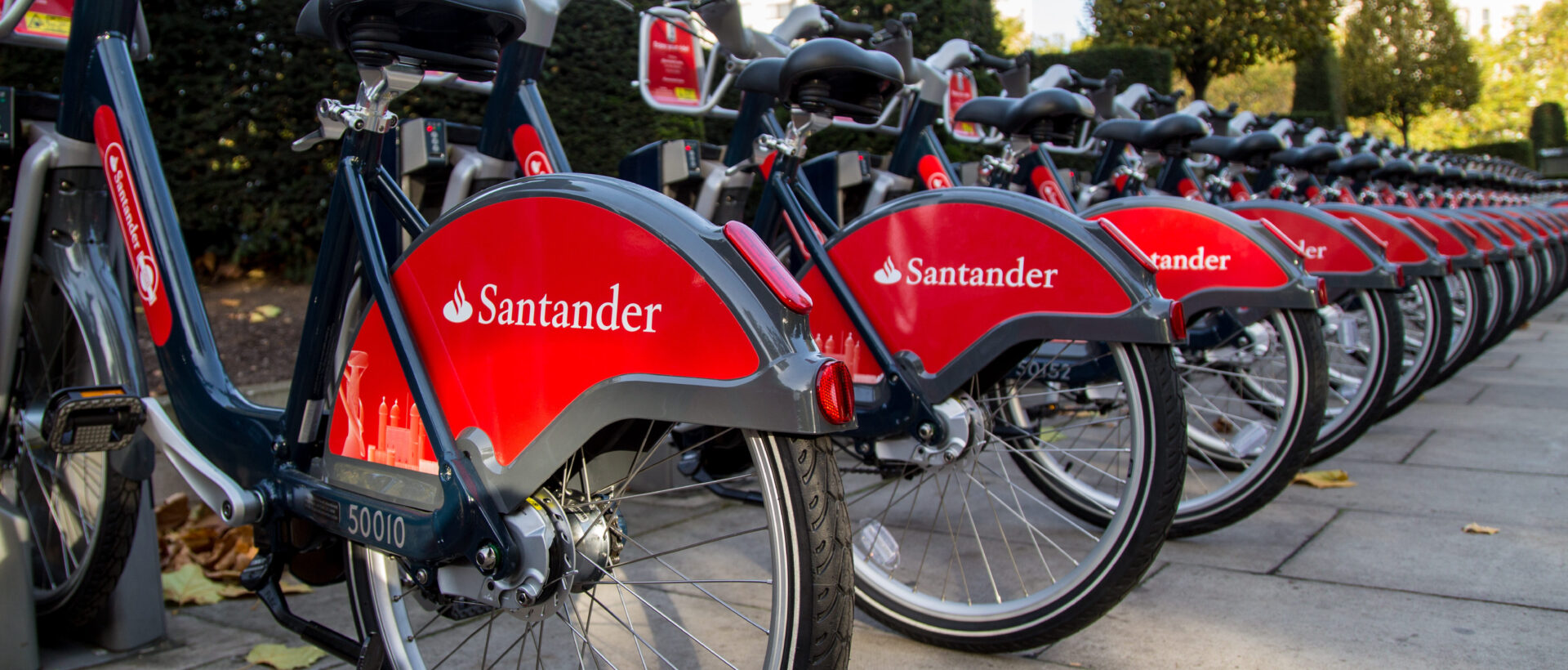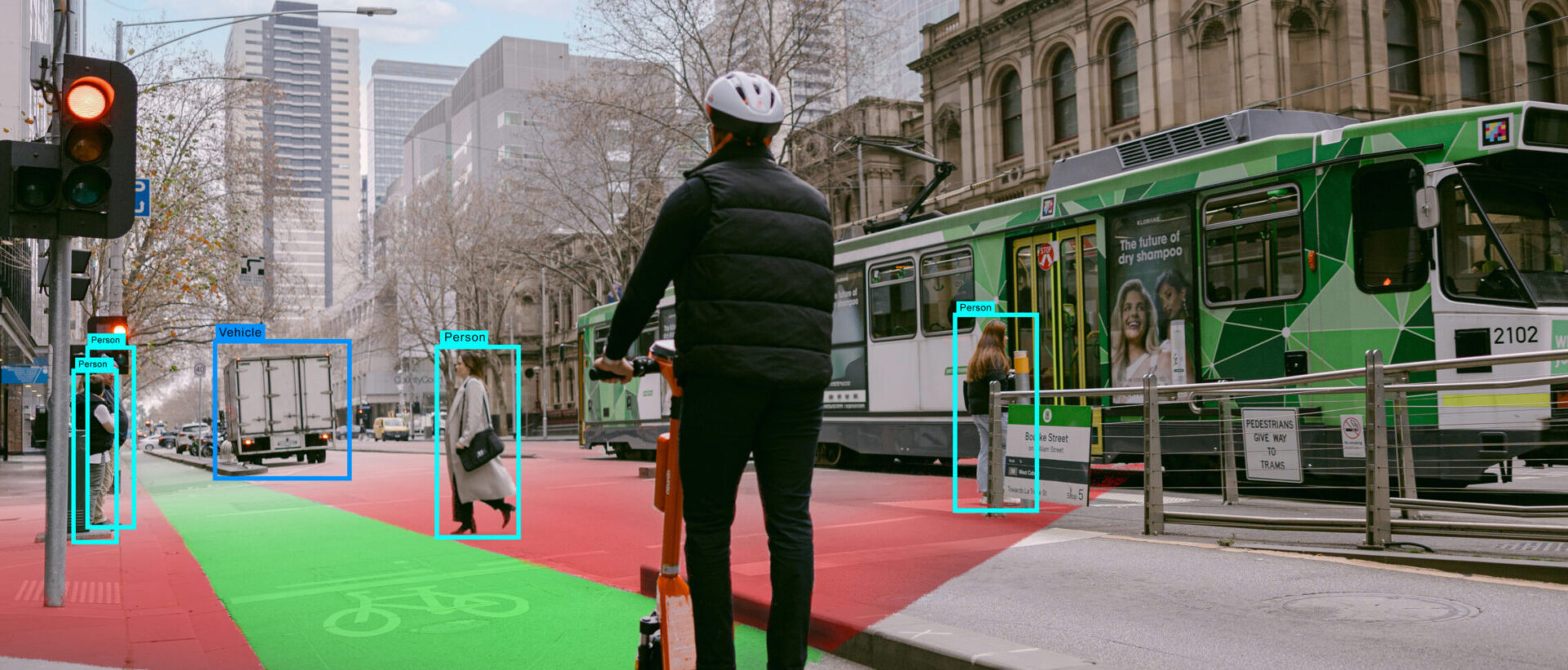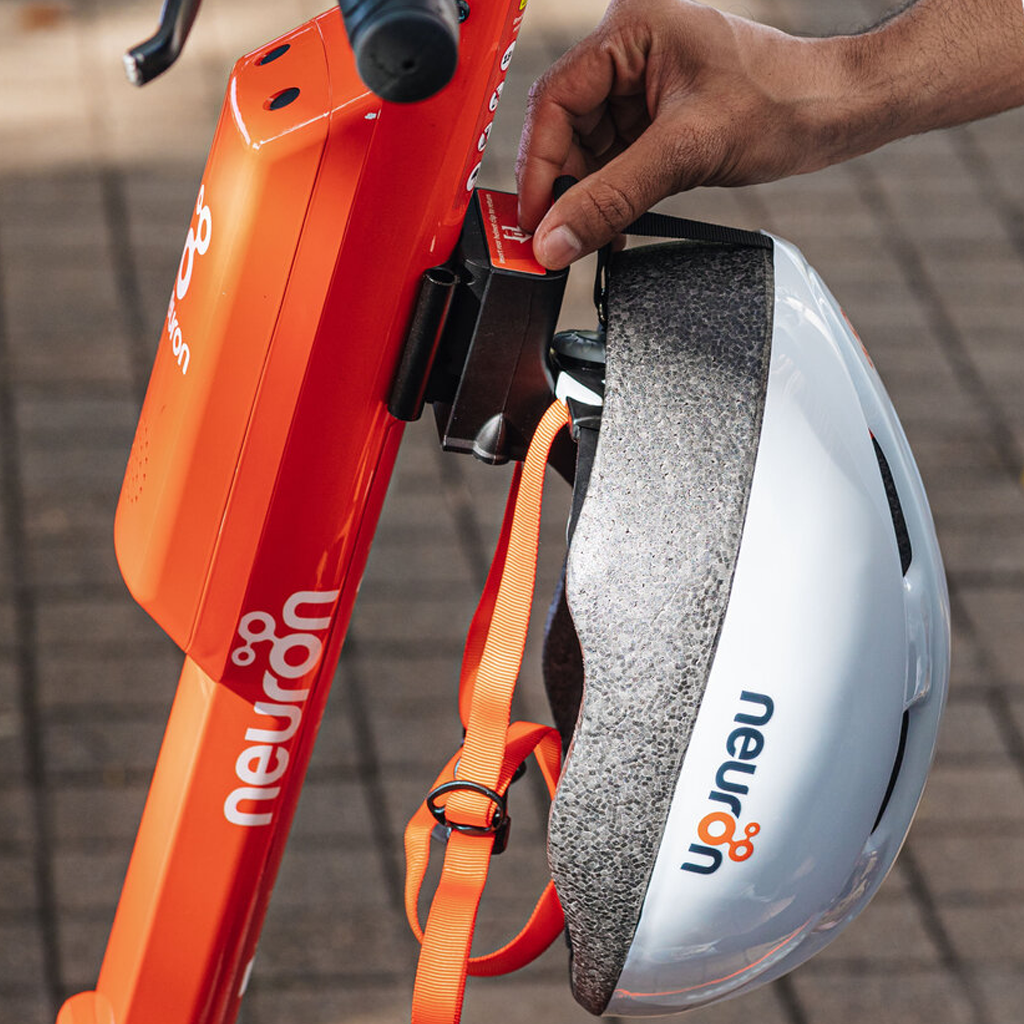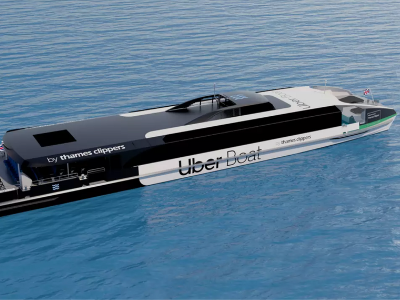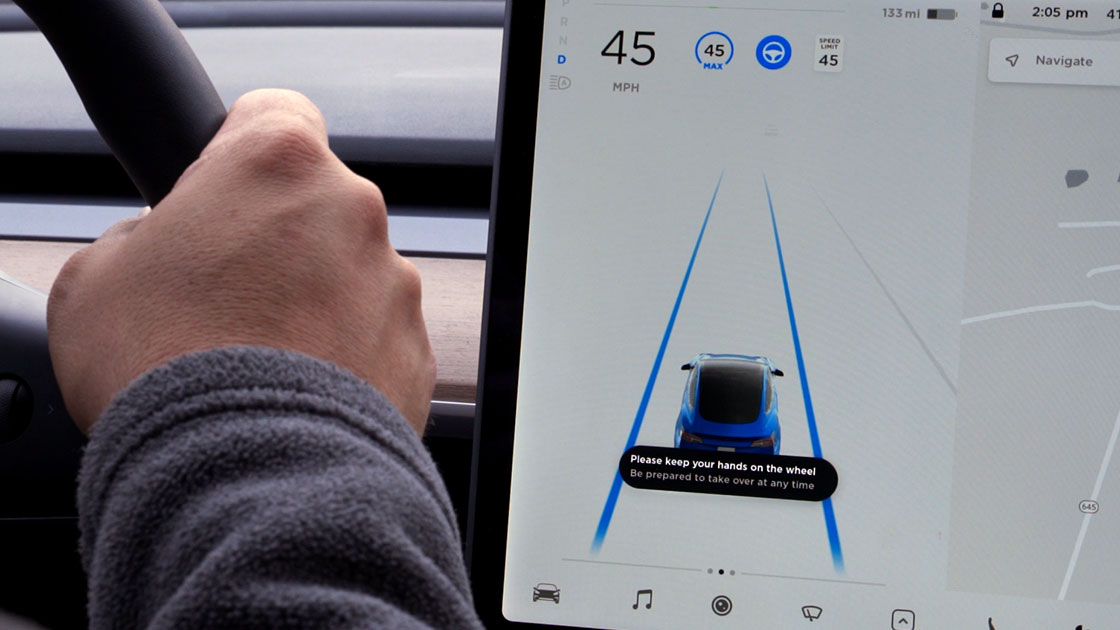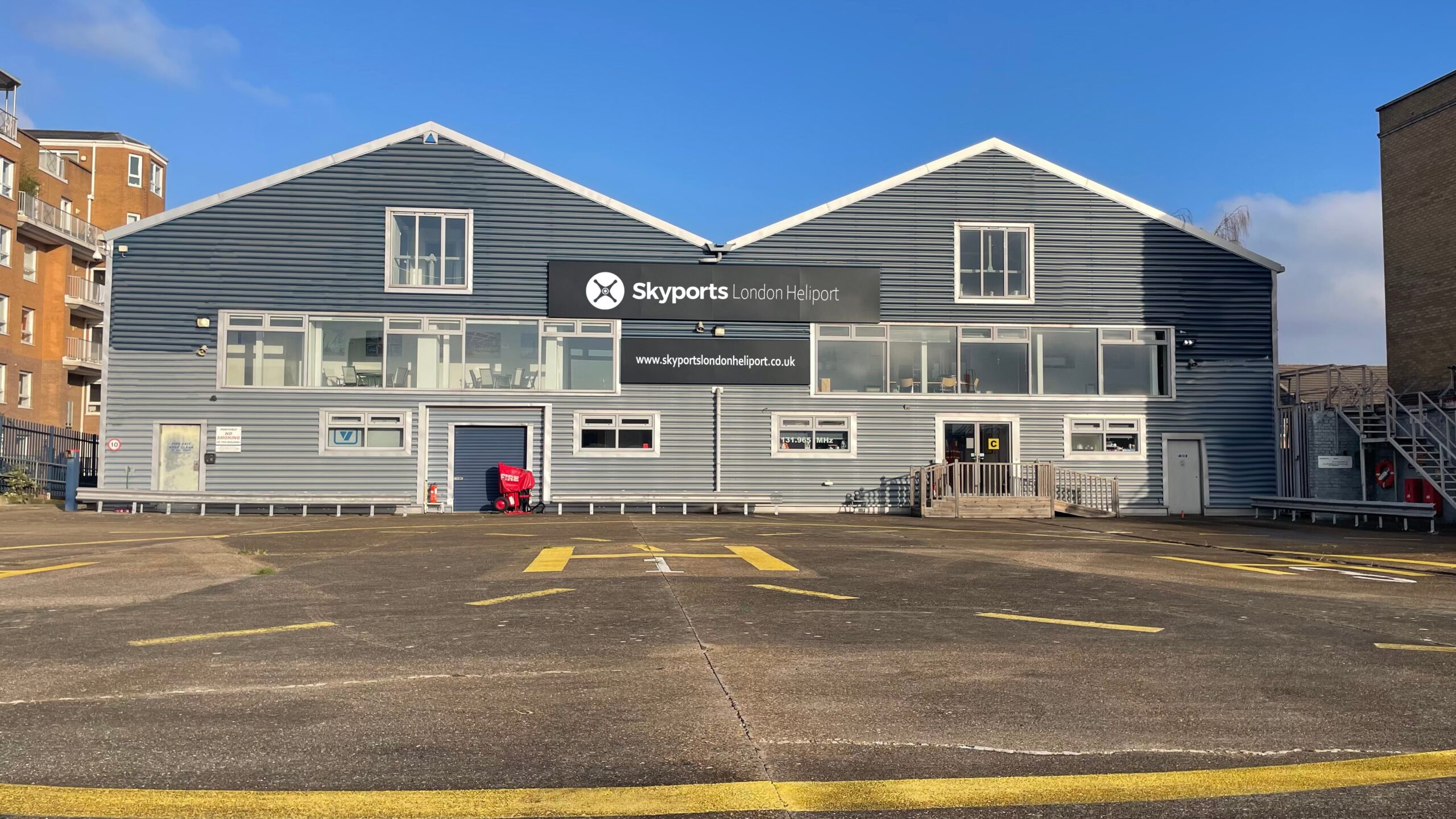London’s e-scooter operators TIER, Lime, and Dott have announced a partnership with UCL’s Person-Environment-Activity Research Laboratory (PEARL) to develop a universal warning sound to alert pedestrians and road users that an e-scooter is approaching.
The produced sound will be tested by e-scooter operators in London later this year, with the hope of setting an industry standard that can be scaled to other UK cities and beyond.
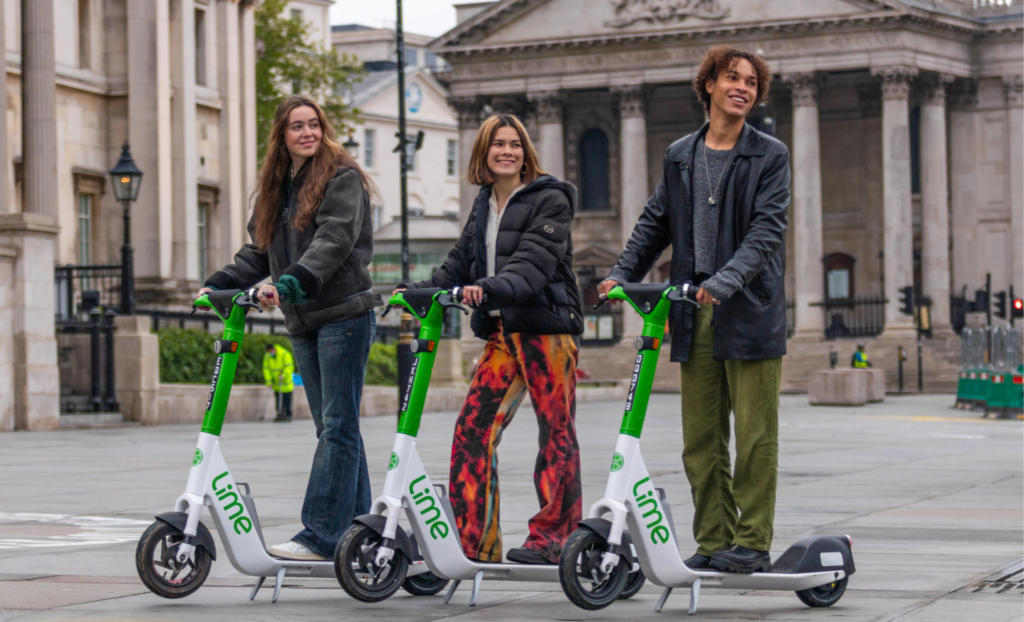
Professor Nick Tyler, Director, UCL PEARL said:This is an exciting project to work on to ensure that people with a range of different capabilities can know when an e-scooter is nearby. Through studying how the human hearing system has evolved, we can create sounds for e-scooters that are detectable without adding more noise to the environment. We plan to test a range of combinations of sounds and environments at UCL PEARL with people who are less likely to detect e-scooters nearby, so that we create a sound that works for all. It is a huge scientific challenge, but one that will enable everyone to feel comfortable with this new form of micro-mobility that is quickly growing in popularity.
The joint initiative project is endorsed by TfL to help improve safety across the entire e-scooter industry in London. The universal warning sound will alert road users that a rental e-scooter is approaching, regardless of its operator or make. This feature will be especially useful to people with sight loss, and the research will consequently engage with disability experts and consultants, including Transport for All, Thomas Pocklington Trust, and Royal National Institute of Blind People.
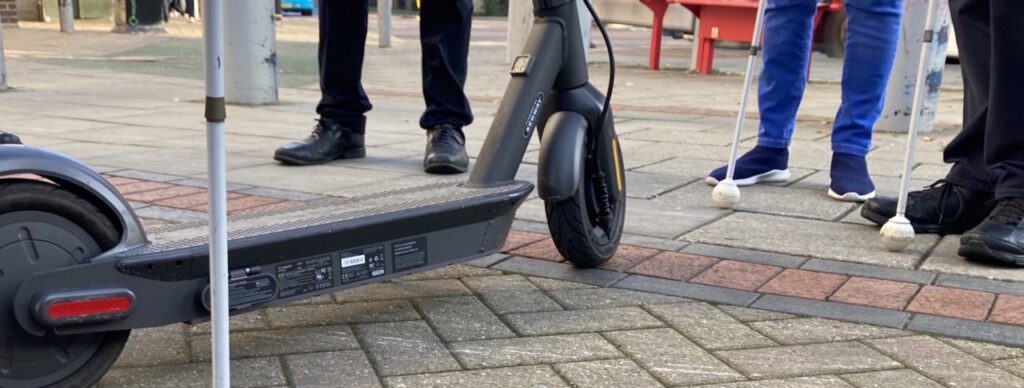
Mike Bell, National Public Affairs Lead at the Thomas Pocklington Trust said:It’s vital transport works for everyone, and is safe and inclusive for those with different needs. Introducing a clear, recognisable sound to e-scooters will help protect blind and partially sighted people and other potentially vulnerable road users by helping them to detect when a vehicle is approaching.
In addition to benefitting those with sight loss, the universal warning sound also aims to consider those with hearing loss and neurodiverse conditions. It will be ethically tested at the PEARL research facility, where different city environments can be replicated, before testing commences on the street.
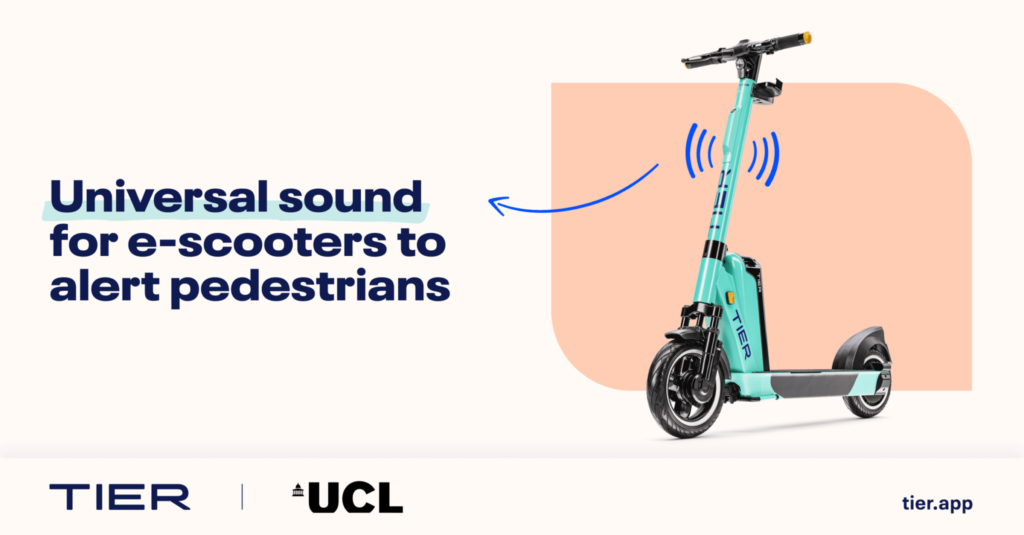
Fred Jones, Vice President and Regional General Manager of TIER, said:Safety is at the heart of everything we do at TIER, and so we are proud to have initiated and funded this project to develop an inclusive and effective sound for e-scooters. TIER will license the use of this sound for free to the benefit of other operators in our industry, and the residents of the cities in which they serve. Working with experts at UCL to develop an inclusive sound for e-scooters will be crucial to protecting pedestrians and road users potentially made vulnerable through the introduction of this new transport mode to the UK.


